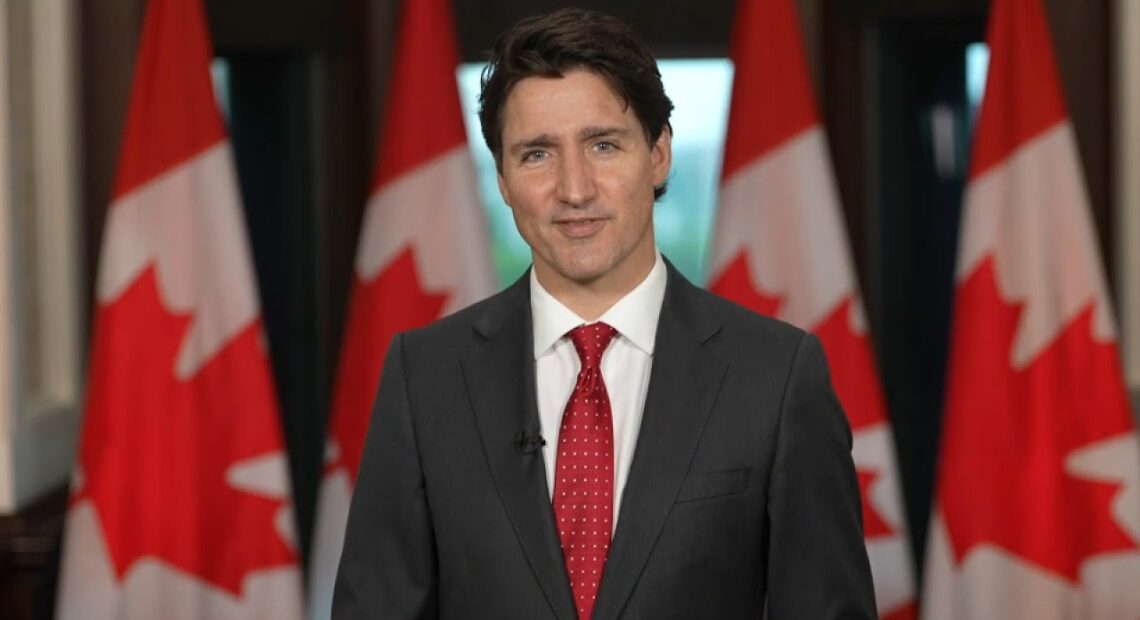Prime Minister Justin Trudeau Has Announced A $15-Billion Top-Up To The Federal Government’s Apartment Construction Loan Program, Aiming to Boost Rental Units Across Canada

Declaring a $15-billion top-up to the Apartment Construction Loan Program (ACLP) of the federal government, Prime Minister Justin Trudeau told the media on Wednesday that the government has a plan to increase the amount up to $55-billion to encourage provincial and territorial participation and partnerships to intensify the number of rental units across Canada. According to him, the new cash flow will financially empower Canadians to build at least 30,000 additional units.
Trudeau’s announcement on “Canada Builds” is the latest addition in the campaign-style announcements. It could probably continue until Finance Minister Chrystia Freeland tables the budget for 2024 on April 16. On Wednesday, at a news conference in Toronto, the prime minister opined that “Canada Builds” is an endeavor to ensure affordable apartment construction with active participation and partnership with territories and provinces. He further added that “Canada Builds” would increase affordability by providing Canadians with low-cost loans and availability of rental units all over Canada. This will speed up real estate growth and boost the development of construction projects which are essential to meet the urgent needs of Canadians.
The Apartment Construction Loan Program (ACLP) makes loans available for Canadian property developers interested in keeping a rental project’s units (at least 20 per cent) as affordable housing. However, with the new declaration prime minister included a chance to offer property developers some unspecified flexibilities on affordable needs. Moreover, it has a clear chance to ensure energy efficiency, availability and accessibility rules.
With this announcement, he wanted to make funding easily available for matching partnerships and lands coming for the approval of fair housing plans. Now, through the Apartment Construction Loan Program (ACLP), Mr. Trudeau proposed to offer some of the money directly to provinces for the implementation of their home-building programs if they meet certain terms and conditions.
Remarks by the Deputy Prime Minister on a new National School Food Program to Set Kids Up for Success
All generations from kids and teens to parents and grandparents deserve a healthy, fair and bright future. Keeping a close look at it, the Canadian government is setting a budget for 2024 to build an economy to support Canadian families. With an intention to aid generation for going ahead uninterruptedly, the Deputy Prime Minister of the Government of Canada declared that the government has decided to include it (birth future for all) in Budget 2024.
According to him, Children deserve a very good start for a bright future. Unfortunately, one out of four children in Canada does not get adequate food and suffers from malnutrition. It creates a very bad impact on their health and brain development. They don’t get opportunities to grow and learn freely. Higher grocery prices and house rents are making it hard for their parents to afford adequate healthy and nutritious food.
Different studies have proved that when kids get an adequate amount of nutritious food, they do better in their studies. When they do good in school and their studies, they can achieve success and a bright future easily. Every kid should get a fair opportunity to secure success. Fair opportunity should not be restricted to kid’s level; rather the government would like to ensure fairness at every stage of life. The government will start supporting it from childhood to carry forward it till old age.
To make this dream come true Prime Minister, Justin Trudeau announced a new National School Food Program on Monday, April 1, 2024. With an investment of 1 billion Canadian dollars for a five-year Program, he declared to launch a target of providing 400,000 kids with meals every year. He set this goal to include in Budget 2024. These will be made available with existing school food programs. Now, it is a good relief for the poor parents.
Government Highlights Next Step to Universal Access to Free Contraceptives
On March 30 at Snowdon Pharmacy, deputy prime minister and minister of finance- the Honorable Chrystia Freeland and the Minister of Mental Health and Addictions and Associate Minister of Health- the Honourable Ya’ara Saks jointly disclosed the government’s plan for the pharmacy industry.
As per their highlights, the government is going to take the initiative to roll out the first phase of national universal pharmacare, including pharma care in the upcoming Budget 2024. According to them, this new initiative will dissolve the barriers to accessing medications mentioned in the prescriptions about contraceptives and diabetes. It is an endeavor to bring those medicines one step closer to everyone seeking those medications. With this plan, the government is trying to roll out the first phase of delivering a national pharmacare plan, postponing the Pharmacare Act last month. This will create a way to achieve the goal that Canada is equitable and affordable for all. New national pharmacare will empower women to make decisions on consuming contraceptive medications as per their planning. They have the right to choose, consume and stop those when they want to start a family.
Furthermore, their opinions are clear that the federal government has discerned and addressed the issue correctly that the high prices and financial costs of contraceptives and diabetic medicines have mitigated access to these. According to them, the high cost is the largest barrier to accessing these. They are hopeful enough that the universal pharmacare plan will break the barrier between cost and need. Reducing financial barriers will help over nine million women to have access to contraceptives as per their needs. They can use these, based on the needs of family planning or medical treatment. Moreover, they will have liberties to select contraceptives as per their needs and choices. They can choose those that fit best to their health and budgets. Improving access and availability will help over 3.7 million Canadians depending on diabetic medications like insulin and many like these for life-saving.


















